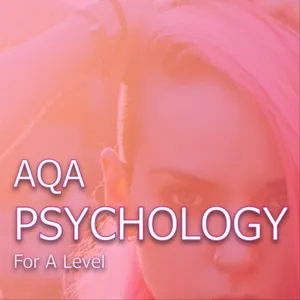Outsmart a Narcissist: A Proven 4-Step Plan to Take Your Power Back

Is it possible to be around narcissistic people and not lose your power? Especially when it's your mom, dad, ex, or boss who’s acting toxic?
Today, Mel is joined by Rebecca Zung, an expert on narcissism and a globally recognized high-conflict negotiator. Rebecca is also a top-ranked trial lawyer who has studied narcissism so that she could win against them in the courtroom. She’s written the playbook, SLAY the Bully: How to Negotiate with A Narcissist and Win.
She is here to make the case that you CAN stay in power no matter how toxic the people are around you. And by following her 4-part plan, you can even win when dealing with narcissism.
In this conversation, Rebecca discusses topics like:
Narcissism: what is it?
The 3 types of narcissism.
What a covert passive-aggressive narcissist is.
What a malignant narcissist is.
What a grandiose narcissist is.
The link between narcissism and divorce.
The exact phrases that can change the dynamic between you and a narcissist.
The top 3 sentences to disarm a narcissist without causing rage.
Why “cutting off” a narcissist won’t work.
The physical symptoms you can have when dealing with a narcissist.
Why being “the victim” is keeping you trapped.
What narcissistic supply is and why it is so important.
The 2 ways a narcissist gets their “narcissistic supply".
What happens in a narcissistic brain in childhood that flips a switch.
The tie between trauma and narcissism.
What the 4 non-verbal triggers for any narcissist are.
Why a narcissist is just an 8-year-old throwing a tantrum.
The reason why a narcissist actually fears you.
The definition of love bombing and why it’s so addictive.
What the 3 phases of a narcissistic relationship are.
How you can be physiologically addicted to a ‘love bomber’ (it’s as addictive as cocaine).
What narcissistic rage is and why it happens.
What your 3 options are in a relationship with a narcissist.
What happens when you become the focus of narcissistic rage.
What those passive-aggressive or back-handed comments mean to a narcissist.
What triangulation is, and how to protect yourself.
The biggest myth about narcissists.
The real reason why narcissists string you along.
The 4-step process to getting your power back from a narcissist.
The $2M apology.
What to do when a narcissist is raging at you.
When it's okay to tell a narcissist what they need to hear.
The 3 things to stop doing now in a narcissistic relationship.
How to respond to an accusatory email at work.
What you need to know about negotiating with a narcissist.
Why saying “I’m anticipating…” disarms any narcissist.
The first boundary you need to create with a narcissist.
What to look for as signs that you are dating, engaged to, or married to a narcissist.
You can purchase Rebecca’s book, ‘SLAY the Bully: How to Negotiate with a Narcissist and Win’, here: https://a.co/d/bLWp5YZ
Follow Rebecca Zung:
Instagram: instagram.com/rebeccazung
Webpage: rebeccazung.com
Watch the episodes on YouTube: https://bit.ly/45OWCNr
Check out my book, The High 5 Habit: https://a.co/d/g1DQ8Pt
Follow me:
Instagram: https://bit.ly/3QfG8bb
The Mel Robbins Podcast Instagram: https://bit.ly/49bg4GP
LinkedIn: https://bit.ly/46Mh0QB
TikTok: https://bit.ly/46Kpw2v
Sign up for my newsletter: https://bit.ly/46PVnPs
Want more resources? Go to my podcast page at melrobbins.com/podcast.










